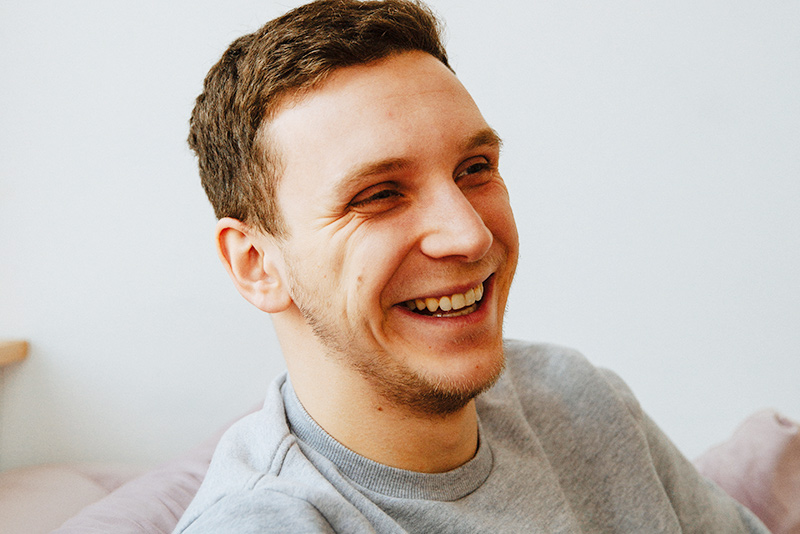By Jerry Avenaim | EXECUTIVE DIRECTOR |
Even though today marks the end of Mental Health Awareness month, people face mental health challenges every single month. Therefore, It is important to remember that the work of raising awareness does not end on May 31st, but needs to begin again tomorrow on June 1st.
Mental health awareness is essential to living a healthy and happy life, and here in the US the month of May is set aside as Mental Health Awareness Month. During this time, many organizations take steps to provide an opportunity for people to learn more about mental health conditions, share their stories with others, and focus on supporting those who are struggling. This article outlines 10 practical steps you can take to raise mental health awareness in your circle of influence.
It isn’t news to anyone that people’s lives get busier all the time, and it is often difficult to muster energy and focus for anything for a sustained period of time. Therefore, the ten ideas listed below are offered with the intention of being considered as potential alternatives to suit a range of peoples schedules.
Find one or two ideas that may fit with your lifestyle, make an entry in your calendar with a reminder and see what a little focus can do. As always, be gentle with yourself if you miss a goal or two and never forget to take time to look after your own mental health.

10 Practical Steps to Raise Mental Health Awareness
1. Educate yourself on the signs of mental illness. It’s important to understand what forms of behavior could be signs that someone is suffering from a mental illness so you can help recognize it and offer assistance if needed. Seek out reliable resources about different types of mental illnesses and how they manifest themselves in individuals before starting conversations with others regarding these issues. Check out our articles on conditions so you can learn more about the symptoms and treatments available for things like anxiety, depression, postpartum, PTSD, obsessive-compulsive, stress, phobias and more.
2. Lead by example and talk openly about mental health. Making an effort to discuss your own struggles with mental health or the struggles of people you know will help break down the stigma and encourage others to feel more comfortable talking about their experiences. Showing that it’s okay to reach out for help when needed can be both empowering and comforting.
3. Check in with friends, family members, and colleagues who may be struggling. Even if someone isn’t displaying any symptoms of a mental illness, they could still benefit from some extra support during difficult times. Be sure to listen without judgement when someone is confiding in you – this will validate their feelings and create a safe space for them to express themselves comfortably.

4. Use social media to spread awareness and offer support. Sharing resources, participating in online conversations, and posting encouraging messages can help make a positive impact on people’s mental health from afar. Utilize hashtags such as #MentalHealthAwarenessMonth, #mentalhealth, #anxiety, #depression, #healing, #suicideprevention, #happiness, meditation, #selfcare, #mentalhealthawareness, #selflove or #breakthestigma to join the global conversation about this important topic.
5. Support local organizations that provide mental health services. The best way to show your commitment to raising mental health awareness is by donating your time or money to reputable organizations that are dedicated to providing care and resources for those who need it most. Doing so will help ensure that everyone has access to the quality care they deserve regardless of their financial situation or location.
6. Let people know that they’re not alone. Reminding someone who is struggling with their mental health that there are thousands of other people going through similar experiences can be incredibly reassuring and provide a sense of hope when things seem bleak. Sharing stories from your own life or those of others can be powerful and inspiring for anyone feeling isolated or overwhelmed by their situation.

7. Avoid making assumptions about mental health conditions. As much as possible, try to stay informed on the latest developments in treatment practices before offering advice to someone who may be battling a mental illness. It’s also important not to make assumptions about individuals based on hearsay or sweeping generalizations – everyone’s experience with mental illness is unique, so approach conversations with empathy and understanding.
8. Participate in awareness-raising events or host your own. Whether it’s a charity event, a community discussion, or an online fundraiser – there are plenty of ways to get involved and spread the word on mental health issues during Mental Health Awareness Month. Taking part in these activities allows individuals to connect with like-minded people and further strengthen their commitment to fighting stigma around this topic.
9. Volunteer at counseling centers or other mental health institutions in your area. People who have experience dealing with mental illness often make great volunteers for these types of organizations because they understand how difficult it can be to seek out help when needed. Knowing that someone has been through similar struggles and is willing to provide assistance can be a huge source of comfort for those in need.

10. Participate in research to further mental health awareness. Research studies are an essential part of understanding more about mental health conditions and developing better treatments for them. Participating in research opportunities is a great way to contribute to the growing body of knowledge on this topic, as well as help bring awareness to the importance of mental health care and services.
Conclusion: Mental Health Awareness Month provides us with an opportunity that should not be taken lightly – it’s a chance for us to come together and take action towards reducing stigma related to mental illnesses by educating ourselves, providing support for those who need it the most, and advocating for better mental health services. By taking some of the above-mentioned steps, we can all do our part in creating a more supportive and understanding world for our family members, friends and our neighbors.
Subscribe to get notifications about future articles.
About the Author: Jerry Avenaim – EXECUTIVE DIRECTOR


